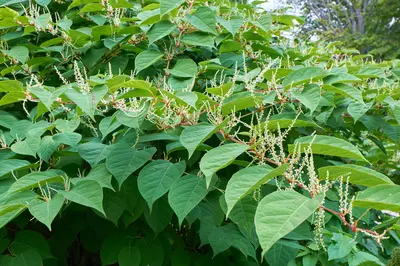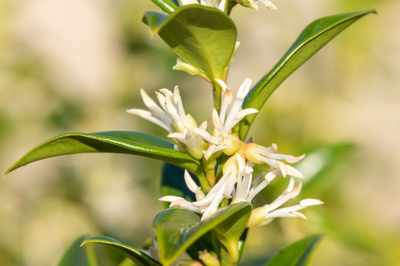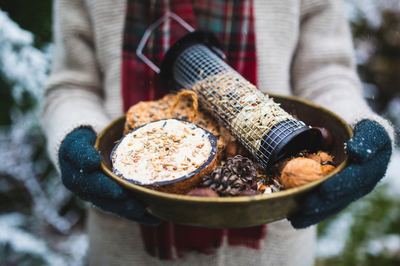Why It Makes Sense to Feed Birds All Summer
By Myrna Pearman, Mother Nature’s Naturalist and Backyard Birding Expert
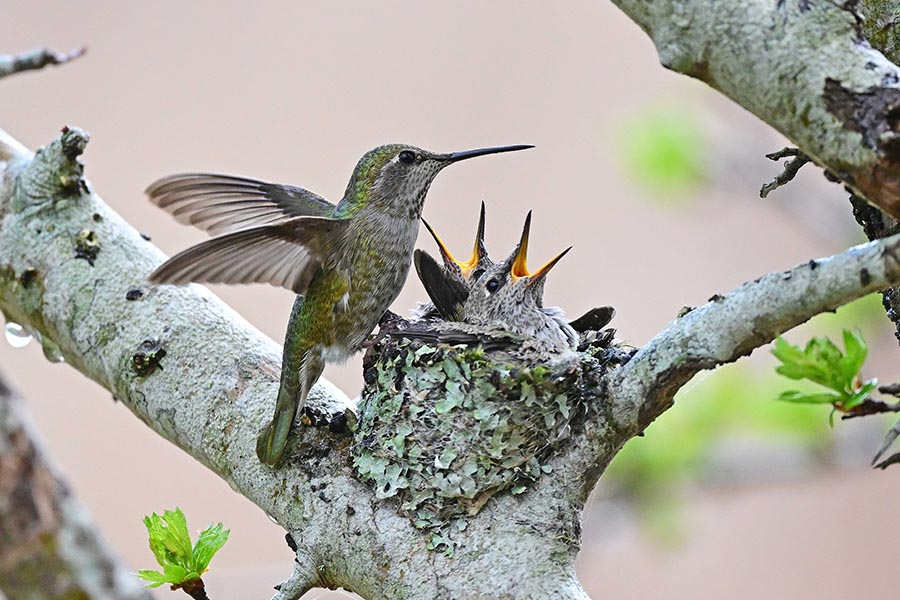
I have been feeding, observing and photographing backyard birds for almost forty years. I’ve written several books about backyard bird feeding and regularly give public presentations on this topic. Invariably, I still get questions about feeding the birds during the summer. Won’t the birds choke on peanut butter? Won’t the birds switch their diet from (healthier) insects to (less healthy) seeds? Won’t the birds become dependent on supplemental food and forget how to forage in the wild? Won’t the babies choke on seeds?
These concerns are all unfounded!
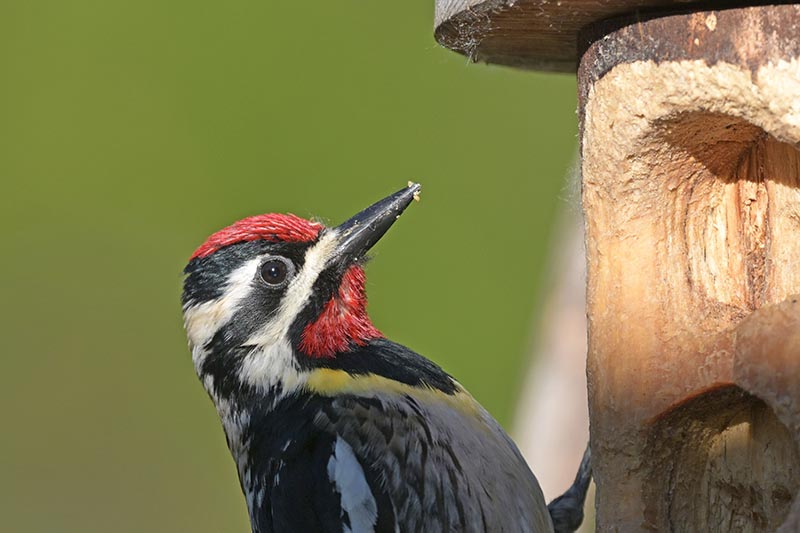
Wild birds have evolved, over millennia, their own unique feeding strategies. The genes of any individuals/species that failed to establish a sufficiently large and diverse feeding territory, i.e., one containing a multitude of food sources, have long since left the gene pool. Food sources, as well as territory sizes and shapes are unique to each species, and requirements will vary depending on the season.
Food is the key factor related to migration: birds that can find sufficient food during the winter months can remain on their breeding territories while those that cannot must migrate south. Spring sees a return of migrants to their northern breeding grounds in order to take advantage of an abundance of insects, nectar, blossoms and fruit (including pomes, berries, samaras etc.). Healthy birds will easily find all the food they need (providing we don’t use poisonous pesticides) to sustain themselves and to feed their hungry offspring.
Although insects and other “natural” items will be the most widely consumed, birds will still continue to pursue other menu items during the spring, summer and fall. This is where backyard bird feeding stations can play a role.
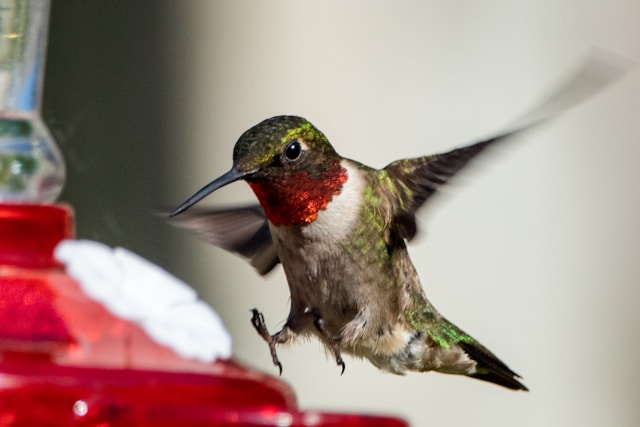
Some summer species, especially hummingbirds, will be readily attracted to backyard hummingbird feeders and a female hummer may even choose a nesting site that is within flying distance of a feeder. Sapsuckers and Downy Woodpeckers may also come in to slurp the sweet nectar.
Where they occur in the province, Bullock’s Orioles will also come into hummingbird feeders as well as specialized oriole feeders. Orioles will also dine on grape jelly and oranges.
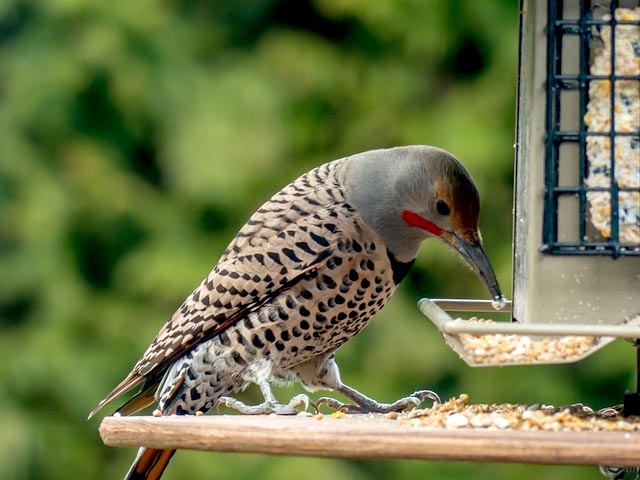
Resident woodpeckers (including flickers), blackbirds, chickadees, creepers, kinglets and nuthatches will visit feeding stations during the summer months to dine on both seeds and suet. Keep a feeder or two topped with sunflower chips and good quality suet cakes to attract them (and eventually their offspring!). Peanut butter and peanut butter/suet mixtures can be used but should be offered only in small quantities at a time. Raw suet will drip and ooze, but the birds will still continue to peck away at it.
Native sparrows will also continue to check out the offerings that have fallen to the ground beneath feeding stations, and sapsuckers may also put in an appearance to peck at seeds and suet and, as above, sip at a hummingbird feeder.
Several finch species, which are exclusively seed eaters, will also patronize summer feeders to eat sunflower seeds or Mother Nature’s Finch Mix. A few peanuts can be added to the mix, as jays will continue to relish these delicacies even during the summer.
Keeping a few feeders out during the summer will not only provide supplemental food for the neighbourhood backyard birds, but it will also continue to bring them in for your daily viewing pleasure. The key is to remember that the food you are offering will never replace the nutritious and readily available wild foods that they are consuming during this busy and beautiful season! Your clean, well-stocked and well-maintained feeders will simply provide additional dining opportunities for the birds you share your outdoor living space with.
Have more questions? Visit your local Buckerfield's and we'll be happy to help!

